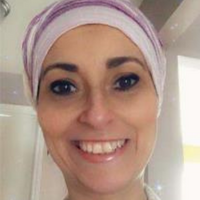
Online
100 weeks
(Including breaks)
$40 (Domestic)
$140 (International)
$7,000 (Domestic)
$8,500 (International)
$5,000 (Domestic)
$6,500(International)
+ textbook fee
~$1,400
Start Date
SUMMER SEMESTER
Full-Time (Morning)
Program Duration: July 8, 2024 – July 3, 2026
Year 1: July 8, 2024 – July 4, 2025
Year 2: July 7, 2025 – July 3, 2026
Synchronous: Mondays, Wednesdays, and Fridays; Times: 9:00 am to 1:00 pm PST
Asynchronous: Tuesdays and Thursdays
Practicum: April 27, 2026 – July 3, 2026
All synchronous sessions are recorded and are available for asynchronous viewing for seven days after the synchronous session.
Apply NowDownload Brochure
The Canadian College of Health Information Management (CCHIM)has accredited the Diploma in Health Information Management. This accreditation demonstrates to the public that the program is aligned to industry standards. Ashton College is a full academic partner of the Canadian College of Health Information Management (CCHIM) which allows for Ashton College Faculty and Students to share the CCHIM academic resources.
The diploma is designed to meet the needs of today's health information professionals and provides the knowledge and skills essential for a successful career in HIM. With this diploma, we want to ensure that students gain the skills they need to succeed in their future career.
The Canadian College of Health Information Management sets the accreditation standards for educational institutions offering health information programs in Canada. Accreditation demonstrates to the public that a program is aligned to industry standards, as identified through the College’s needs assessment and consultation with the industry. It is a voluntary, self-regulatory process to recognize those that meet or exceed the standards set for health information education. The purpose of accrediting programs is to ensure continuous quality improvement of the educational content to support the evolving health information profession.
Graduates of the DHIM program are eligible to write the Certified in Health Information Management (CHIM) national certification examination (NCE) conducted by CCHIM.
Upon completion of the program, the successful student will have reliably demonstrated the ability to:
For more context on what a potential career in Health Information looks like, please read more on our blog.
In this course, students will be introduced to the profession of Health Information Management (HIM) and the various healthcare settings that they could find themselves employed in. Students will get a look at data, all the way from collection to destruction. Students will gain an appreciation for the responsibilities of a health information management professional, their role in maintaining high quality patient records and how to properly store data. Students will also become familiar with the role of the Canadian Health Information Management Association (CHIMA) and the Canadian College of Health Information Management (CCHIM) as well as the credentialing and certification processes for HIM professionals.
Through this program (as well as in the field of health information management) there are many times in which a foundational understanding of the Microsoft Office Suite is necessary. In this course, students will develop their skills in Microsoft Word, Excel and PowerPoint. Students will get the opportunity to create and present their work to their peers. Students will also build on their keyboarding, developing skills in speed and accuracy.
In this course, students will explore the ethical considerations when handling health information. Students will discuss the appropriate ethical conduct required to carry out a career in health information management. Students will explore the CHIMA Code of Ethics and apply it to case studies of scenarios from various healthcare settings. Topics in this course will also cover practice guidelines and the various health information organizations.
In this course, students will be introduced to terminology commonly used in medical practices. By breaking down the components of medical terms, students will be able to interpret the terms based on its relation to specific body systems. Students will learn accurate spelling and pronunciation as well as the most widely used abbreviations and clinical tests. Students will demonstrate application of learning by using medical terminology accurately when referring to various healthcare documentation. In the event of uncertainty, students will learn what resources to access in order to clarify the accurate terminology needed in a given circumstance.
In this course, students will obtain a foundational understanding of the structure and function of the human body. This course will look at the following systems: cardiovascular, digestive, endocrine, reproductive, lymphatic, musculoskeletal, nervous, respiratory, skin and sense organs, and urinary system. The course will also look at cells and tissues within the body as well as the function and relationship between systems.
This course will look at the way the human body responds to injury and disease. These reactions to injury and disease are represented within various levels of the body systems. Students will make predictions about future ailments and conditions based on the evidence produced within the body systems. Based on observing the status of the patient, the student will be able to devise clinical data.
This course will provide students with an understanding of the various components of Canada’s healthcare system. Students will begin by looking at the history of Canada’s healthcare system and the levels of governance in Canada that sanction how healthcare is managed. In this course, students will become familiar with the various regulations and legislations involved in both the private and public healthcare sectors, and the various national and international agencies involved in healthcare in Canada. Students will then look at the concept of care and all aspects of care such as the levels of care, the continuum of care and health care issues and trends. Students will gain an appreciation for the role of health information management professionals in the healthcare system.
This course is the first of two coding courses in the Health Information Management Program. This course will introduce students to coding classification standards set out by the International Statistical Classification of Diseases and the Canadian Classification of Health Interventions (ICD-10-CA/CCI). Students will become familiar with all terminology and processes involved in implementing a classification system as well as the different classification systems in Canada. Students will begin classifying health information by practicing adhering to classification guidelines. This course will look more specifically at the following body systems: skin, blood, respiratory, musculoskeletal and cardiovascular. Students will apply coding guidelines to neoplasm cases and infection cases.
This course is the second of two coding courses in the Health Information Management diploma program. In this course, students will build on the skills learned in Coding I. Students will continue to practice coding using the ICD-10-CA and CCI classification systems. This course will look more specifically at the following body systems: reproductive, urinary, digestive, nervous, and endocrine. Students will apply coding guidelines to nutritional, metabolic, mental and behavioural disorder cases. This course will explore the processes of sourcing and collection of data, as well as methods used for grouping and case weighting. Students will become familiar with how coded information looks in various systems. This course will briefly touch on the evolution of coding over time. Students will explore repositories, MIS standards, metadata and the cost-benefit ratio of data collection.
In this course, students will explore how information standards are developed and upheld in Canada and within the health information management industry. Students will become familiar with the organizations responsible for the development and implementation of standards. This course will also discuss electronic health records (EHR) in Canada and the state of EHR projects in progress.
In this course, students will examine the impact of data quality on users, and wherein the health care continuum there may be issues due to poor data quality. Students will become familiar with the process of managing data quality and the frameworks in place to maintain data quality. In this course, students will also get a chance to use electronic records management systems to conduct edits and checks of data to ensure quality standards are met.
In this course, students will explore the content and requirements for patient records as well as the management of records. Students will learn about the storage, retention and destruction of patient records and the necessity of privacy and confidentiality through all stages of the lifecycle. Students will also explore how to detect and correct errors in records.
In this course, students will explore both inferential and descriptive statistical measures. Concepts covered in this course are measures of central tendency, variation, probability, sampling distributions, frequency distributions, confidence intervals, correlation, regression, estimation and hypothesis testing. Case studies chosen will be examples from the healthcare industry to be used in applying theory to practice. In this course, students will also become familiar with software that is widely used in statistical analysis
This course provides a foundational look at research methods used in healthcare. Students will become comfortable using research terminology and get an overview of research concepts. During the course, students will build on their skills to critically analyze data, as well as the steps required to conduct research within healthcare settings. Students will get a chance to conduct their own basic research study using a methodology of their choosing and present their findings to their classmates.
This course will explore epidemiology and the methods and strategies used by epidemiologists to measure and manage communicable diseases. This course will outline the role of epidemiology in healthcare and how epidemiological data is used to inform decision-making in the healthcare industry. Students will get a look at how diseases are distributed amongst various populations and the contributing factors to the prevalence of a disease among a certain population or demographic. In this course, students will look at what public health steps are taken to promote health and wellness, as well as prevent disease. Students will also gain an appreciation for the different study designs used in epidemiology and the strengths and limitations of each.
In this course, students will explore how decisions are supported in the healthcare industry and the processes of data analysis. Students will focus on sources of data in Canada and interpret trends in health data. Students will have an opportunity in this course to create their own presentation of data. Other topics covered in this course will be; how to improve care based on data analysis, business intelligence tools, needs assessment methods and quality management.
This course will look at the concepts of privacy and confidentiality of patient records in both physical and electronic form. Students will explore the legalities surrounding the collection and storage of patient records. Students will become familiar with the provincial and territorial privacy statutes as well as the various privacy frameworks used in Canada. Students will also get a look at the process of information retention and destruction.
This course will examine the tools used to protect patient records. Students will discuss privacy, security and confidentiality in the care of patient records. Students will explore the forms of retention and destruction of health information as well as different settings in which patient information is held. Other tools discussed in this course will be; accessing and managing privacy risk, controlling and monitoring access to systems and consent management.
In this course, students will focus on the management of access to information, and the necessary tools and steps required to release information. Students will become familiar with the processes of accessing one’s own information as well as the processes in place in the event of a breach of security. Other topics covered in this course are rights surrounding health information, making requests to change or correct health information and the design and development of policies regarding access to health information.
This course introduces students to the role that information technology systems play within the healthcare industry. Students will explore health information exchange (HIE) to understand how patient information is shared electronically amongst healthcare professionals. Students will become familiar with concepts in database management and the steps in the systems development life cycle. This course will also explore how IT systems are developed from planning to evaluation and maintenance.
In this course, students will become familiar with the principles of management and leadership. Students will explore the theories and techniques used by management to support a team to meet objectives. Students will look at topics in human resources, people management, project management, program evaluation, resource management and risk management.
In this final instalment of the Diploma in Health Information Management program, students will get practical experience working in the field within a healthcare setting. Students will apply what they have learned throughout their time in the program in their respective settings, to prepare them for a career in the health information management sector. Students are expected to conduct themselves professionally and uphold the standards of privacy and confidentiality. Students will complete a self-evaluation, use health information management software, complete a research or administrative project and prepare an information session in their practicum setting.
View practicum guidelines and FAQs: www.ashtoncollege.ca/practicum-and-community-field-experience/
Subject to change without notice
 Dr. Joëlle Bradford
Dr. Joëlle BradfordDr. Joëlle Bradford is a Canadian-trained naturopathic physician. She graduated from the University of British Columbia in Vancouver with a Bachelor of Science, specializing in clinical nutrition, followed by a pre-medical clinical internship in Obstetrics and Gynaecology in Quito, Ecuador. Joelle graduated from the Boucher Institute of Naturopathic Medicine in New Westminster.
Joëlle lived in Hong Kong from 2012 where she practised at the Integrated Medicine Institute (IMI). She treated acute and chronic health conditions in adults, children and infants; identifying and addressing the root cause of the health concern. She also trained in Emotional Freedom Technique (EFT) and was adept at identifying and addressing the underlying emotional component of illnesses, stress and mood issues.
Joëlle was the clinical supervisor for students from Australia’s Nature Care College and taught the students clinical charting, and supervised their patient visits and treatment plans.
Joëlle and her family relocated back to Canada earlier this year and settled in British Columbia. She is excited to have joined Ashton College and looks forward to assisting her students with compassionate understanding on their learning journey.
 Sherin Elkhawaga
Sherin ElkhawagaSherin (pronounced She-reen) Elkhawaga is a Health Sciences Educator, an International Medical Graduate, a Canadian Certified and Registered Medical Radiation Technologist, and a College Instructor. Sherin has a vast background in Radiography and has taught many courses such as anatomy, physiology, medical terminology, healthcare ethics, quality management and pathology. Sherin is a Certified Personal Support Worker and has worked in the hospital as a nurse aide in long-term care facilities. She has recently obtained a Graduate Diploma in Adult Education, Post Secondary Studies, and Health Care Education, on top of a Post-Secondary Instructor Certificate.
 Joble Geevarghese
Joble GeevargheseJoble Geevarghese is a Health Information Management (CHIM) & Health Informatics Professional (CPHIMS-CA) with over 12 years of work experience spanning various healthcare delivery systems in different roles. He holds a Bachelor’s Degree in Nursing, a postgraduate Diploma in Business Management- Health Administration, a Diploma in Health Information Management, and a Master of Health Administration majoring in Health Informatics and Information Management (MHA-HIIM) from the University of Regina. He also has certifications in Lean Green belt, report writing, and data analytics.
 Ashleen Gill
Ashleen GillAshleen Gill is a passionate and ambitious individual who has been working in the healthcare industry for the past seven years. She has completed her Bachelor’s Degree in Nursing and currently specializes in working with disabled individuals in the community. In the past several years, she has found a passion for teaching healthcare staff and helping them find their passion. She hopes to continue this teaching at Ashton College.

Abel Mutize is an Information Management professional with over 20 years of solid experience in Records Management. He holds an MBA, Bachelor of Arts in English and Communication Studies and the following additional credentials: HND LIS, ND PR, ND RIM. He previously worked as a Manager of Records Management and Registration at BC Cancer. He has worked in different managerial and contracting positions for the Government of Alberta, ICBC, Alberta Health Services, BC Hydro, the City of Woodbuffalo, the City of Saskatoon and various oil and gas companies.
 Haidee Paguio
Haidee PaguioA nurse from Ontario, Haidee is an occupational health program manager for one of the world’s largest tech companies. Among her professional experiences are lecturer and clinical instructor for nursing and multiple health care programs, complex occupational health case management, subject matter expert for the Canadian health system and provincial regulations, adult education and training design.
As an Ashton faculty member, she is excited about supporting and mentoring her students in finding their passion in health care and achieving their career goals.
 Aven Sidhu
Aven SidhuAven Sidhu is a medical graduate from the Royal College of Surgeons in Ireland-Bahrain (MB BAO BCh) and has been working within the field of research and health information for 5+ years. Along with his medical degree, he holds certificates in Good Clinical Practices, Quality Improvement, and is completing his Master of Science (Public Health). His research interests include mental health and substance use, community engagement, and health promotion through policy. Outside of work experience, he enjoys golfing, hockey, reading, and writing.
 Reimer, Kyla
Reimer, KylaKyla Reimer is a Health Information Management Practitioner (HIMP) with over 15 years of experience. She graduated from the Saskatchewan Institute of Applied Science and Technology (SIAST) in Regina, SK, in 2007 and obtained her certification from the Canadian Health Information Management Association (CHIMA) shortly after. Kyla has been working with the Cypress Health Region (CHR) and Saskatchewan Health Authority (SHA) since her graduation. She has won various scholarships throughout her education and has brought her skills and expertise to a variety of healthcare settings, including Acute Care, Rural Health, Mental Health, Public Health, and most recently, Kyla was part of a Covid-19 HIM team. Throughout her diverse experiences, Kyla has enjoyed mentoring multiple HIMP students from Saskatchewan Polytechnic. She has also spent years in a supervisory role, providing leadership to various health information professionals and managing the Patient Registration Department.
Kyla enjoys teaching and interacting with others, and she looks forward to educating her students about this growing profession. Her intention is to provide support and a sense of community to her students throughout her classes while helping them achieve their career goals!
 Manaal Zulfiqar
Manaal ZulfiqarManaal Zulfiqar is a Health Information Management professional with over five years of experience in healthcare. Manaal is currently pursuing further education to be a Certified Coding Specialist and Certified Privacy Officer. With skills in healthcare, business intelligence, business process improvement, and health information management, Manaal is a great addition to the DHIM faculty. Outside of work, she enjoys hiking, travelling, and spending time with her family.
Dr. Catherine Antony is an experienced and passionate Health Professional & Educator with a love for teaching and empowering her students through powerful health awareness. She is adaptable in designing and implementing comprehensive services that meet specific goals and health education requirements and standards. She acquired a bachelor’s degree in the healthcare stream and is a trained Homeopathic physician from Father Muller Homeopathic Medical College and Hospital, India. Additionally, she completed a Master of Education program specializing in the stream of Administration, Leadership, and Policy. This helped her understand the theoretical perspectives that influence education as well as the foundational aspects of research. She has also published a research paper on the subject of “Empowering Medical Leadership.”
Catherine practiced in India as a physician for over 7 years and worked in clinical placements in both acute and chronic mixed settings. She collaborated with healthcare management in Ontario, Canada, to establish and manage patient care, monitor and document care, facilitate critical care protocols, and practice quality patient care and patient education.
She is delighted to join Ashton College and is eager to support students in achieving great collaborative achievements.
Meet Sara (pronounced: Saa-ra), she is a Methodologist working at the Ottawa hospital Research Institute. She graduated from the University of Ottawa with a Bachelor of Science, specializing in Psychology. While studying, she discovered her love for statistics and decided to combine her passion for data and healthcare by completing a Master of Science degree in Epidemiology.
Sara has over 10 years of experience working in both the Canadian and the American healthcare systems. She has held various positions relating to clinical research, quality improvement, and data analytics. Her experience has made her an expert in her field, with impressive analytical skills.
Stephy Rajan, a CHIM certified Health Information Coder at London Health Sciences Centre, Ontario, holds a diploma in Health Information Management from St. Lawrence College and a Master’s Degree in pharmacy from Rajiv Gandhi University of Health Sciences, Bengaluru, India. Stephy has over three years of expertise in coding and abstracting. She has additionally worked with a variety of EHRs, including EPIC, Cerner, and Med 2020.
She is dedicated about assisting students in realizing their full potential and gaining an understanding of the outside world, and she enjoys teaching.
Selina Kim has worked in the healthcare and recreational fields for over 8 years. This experience has provided her with opportunities to interact with and support students, as well as healthcare professionals with various abilities, in their activities. This exposure has also given her valuable insights, teaching her a variety of effective strategies. As an enthusiastic professional, she is dedicated to empowering individuals to achieve their goals. Selina is confident that her experience and teaching style will make her an asset to all.
Domestic students need ONE of the following:
And you must prove the following:
Are you a domestic student?
You must show your language proficiency in ONE of the following ways:
English is presumed to be the language of instruction in the following countries:
American Samoa, Anguilla, Antigua and Barbuda, Australia, Bahamas, Barbados, Belize, Bermuda, Botswana, British Virgin Islands, Cayman Islands, Dominica, Falkland Islands, Fiji, Gambia, Ghana, Gibraltar, Grenada, Guam, Guyana, Ireland, Jamaica, Kenya, Lesotho, Liberia, Malta, Mauritius, Montserrat, New Zealand, Nigeria, Seychelles, Sierre Leone, Singapore, South Africa, St Helena, St. Kitts and Nevis, St. Lucia, St. Vincent & The Grenadines, Tanzania, Trinidad & Tobago, Turks and Caicos Islands, Uganda, United Kingdom, United States of America, US Virgin Islands, Zambia, Zimbabwe
Approved English Language Proficiency Tests and Scores
International students need:
And you must prove the following:
Are you an international student?
You must show your language proficiency in ONE of the following ways:
English is presumed to be the language of instruction in the following countries:
American Samoa, Anguilla, Antigua and Barbuda, Australia, Bahamas, Barbados, Belize, Bermuda, Botswana, British Virgin Islands, Cayman Islands, Dominica, Falkland Islands, Fiji, Gambia, Ghana, Gibraltar, Grenada, Guam, Guyana, Ireland, Jamaica, Kenya, Lesotho, Liberia, Malta, Mauritius, Montserrat, New Zealand, Nigeria, Seychelles, Sierre Leone, Singapore, South Africa, St Helena, St. Kitts and Nevis, St. Lucia, St. Vincent & The Grenadines, Tanzania, Trinidad & Tobago, Turks and Caicos Islands, Uganda, United Kingdom, United States of America, US Virgin Islands, Zambia, Zimbabwe
Approved English Language Proficiency Tests and Scores
Do you identify as a mature student?
To qualify, you must meet the following requirements:
Application Requirements
Mature Students must submit ALL of the following:
Additional Requirements
You must meet all of the program-specific and non-academic requirements where listed. In some cases, you may need to complete a placement exam to determine academic readiness.
Tuition fees for the program are payable in instalments. The first instalment is due 2 weeks prior to the start date. Students with guaranteed funding arrangements will be exempt from this requirement provided they produce proof of funding before the cohort start date. International students are required to pay tuition fees in full at least two weeks prior to the start date.
All formats of the program are eligible for Canada Student Loans, other forms of government funding, and bank financing. However, students are responsible for making their own funding arrangements and are advised to contact the relevant funder well in advance of the start date to make an application.
Application and tuition fees for this program are as follows:
Note: Tuition fees do not include the cost of the required textbooks. The approximate textbook fee is $1400.
Ashton College does not sell textbooks directly. Students are required to purchase their textbooks through third-party vendors.
Get the Best of Both Worlds: Live and Asynchronous Learning at Ashton College
Ashton College understands that everyone learns differently, which is why we offer a unique blended learning approach for our live online courses. This approach combines the real-time interaction and immediate feedback of live sessions with the flexibility and self-paced learning of asynchronous materials.
Experience the benefits of both worlds:
Live Online Sessions:
Interact with instructors and classmates in real-time using interactive sessions, breakout rooms, and screen sharing.
Get instant feedback and ask questions for a deeper understanding.
Asynchronous Learning:
Learn at your own pace with recorded lectures, online readings, and discussion forums.
Review materials as needed and revisit difficult concepts for better comprehension.
We encourage you to participate in both components to maximize your learning experience:
Enjoy the interactivity and community of live sessions.
Benefit from the flexibility of studying at your own pace.
Technical Requirements:
Computer System: Fully functional computer with webcam, speakers, and microphone (headset recommended).
Internet Connection: Reliable high-speed internet connection.
Device: While accessible on smartphones and tablets, we recommend using a laptop or desktop computer for a better learning experience.
This program has been approved by the Private Training Institutions Branch (PTIB) of the Ministry of Post-Secondary Education and Future Skills.

